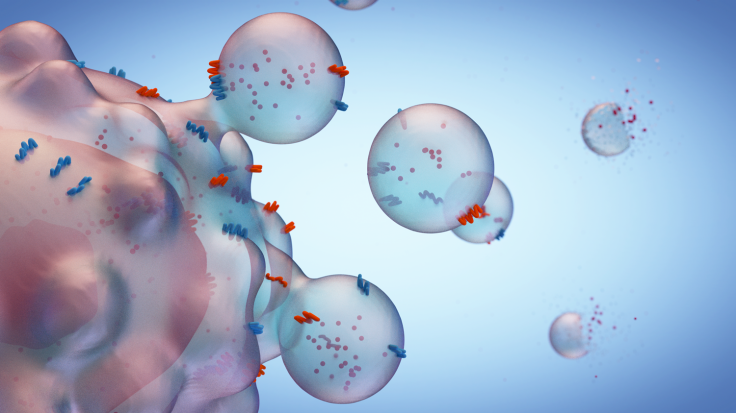Pancreatic Cancer Survival Rates 2017: Early Diagnosis Of Deadly Cancer Now Possible With Blood Test

Doctors might be able to catch pancreatic cancer sooner by looking at what your cells are ejecting.
Pancreatic cancer is so deadly in part because it is hard to find early enough for treatment to be effective. But a study in Nature Biomedical Engineering explains how scientists can look for a certain protein in what are called extracellular vesicles — “tiny bubbles of material emitted from most living cells,” Arizona State University explained in a statement — to detect the disease.
Read: Device Can Smell Cancer on Your Breath
The protein, EphA2, is considered a biomarker of pancreatic cancer because of its role in tumor growth, the study says. Those extracellular vesicles are also active in how cancer progresses and spreads, as they carry signals around your body. Looking for EphA2 in those cell-emitted bubbles, the researchers were able to use blood samples to distinguish between patients with pancreatic cancer, patients with the inflammatory illness pancreatitis and healthy controls.
According to researcher Tony Hu, from ASU, having a biomarker that can detect early-stage pancreatic cancer is crucial in order to give doctors an opportunity to remove cancerous tissue from the pancreas before the disease spreads.
“It’s really hard to capture an early diagnostic signal when there are no symptoms,” Hu said in the university statement. “It’s not like breast cancer, where you may feel pain and you can easily check for an abnormal growth.”
Read: What Affects Your Cancer Risk?
According to the study in Nature Biomedical Engineering, the new method for detecting pancreatic cancer could also be used to track treatment and how well patients are responding to it.
The discovery may help more than just pancreatic cancer patients. The study notes that the EphA2 protein, while mostly absent from the discharge of healthy cells, is abundant not only in the presence of pancreatic tumors but also in the early stages of other cancers like colon cancer, “suggesting its potential as a target for early cancer detection.”
Source: Hu Y, Liang K, Liu F, et al. Nanoplasmonic quantification of tumour-derived extracellular vesicles in plasma microsamples for diagnosis and treatment monitoring. Nature Biomedical Engineering. 2017.
See also:



























